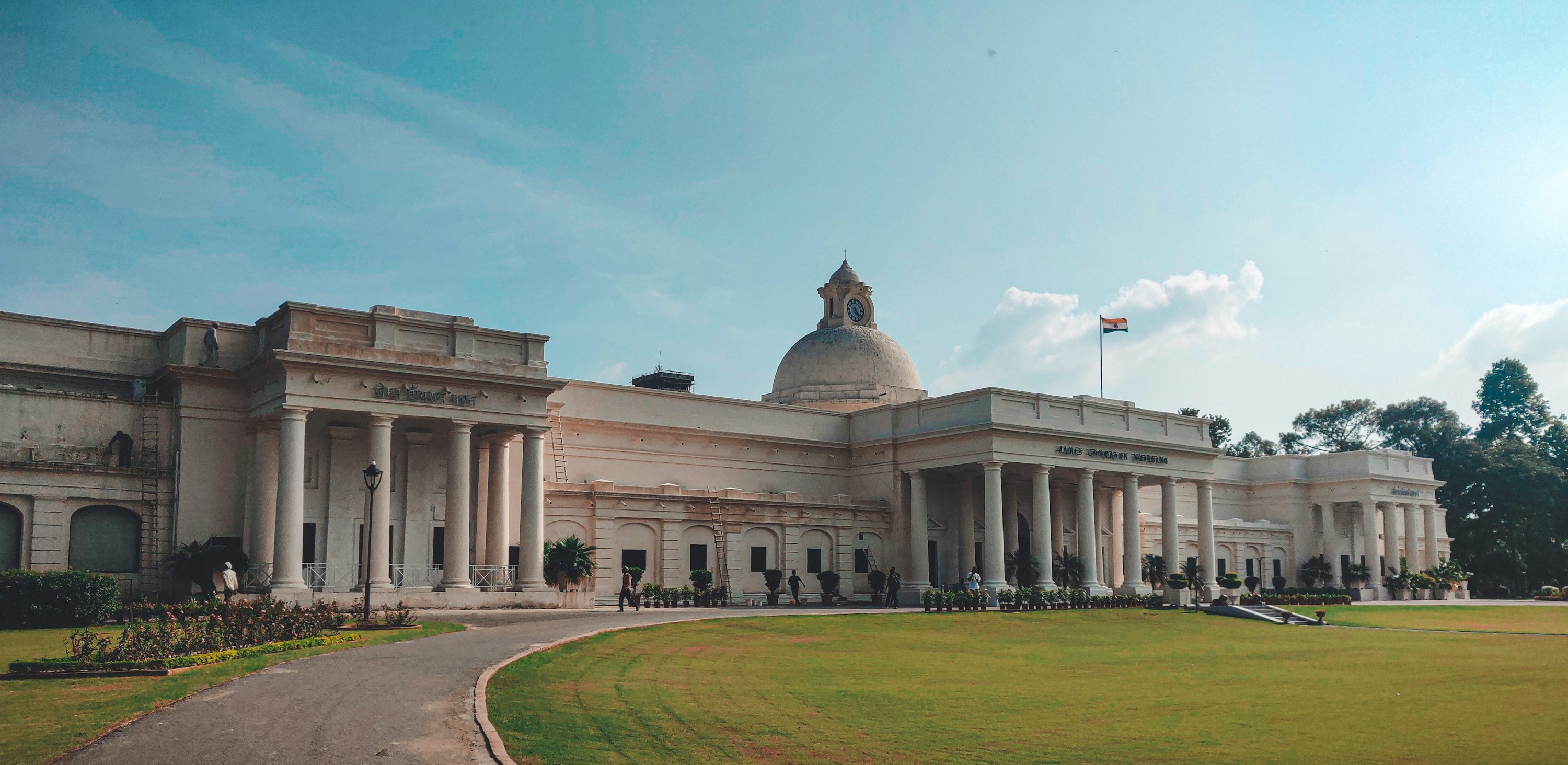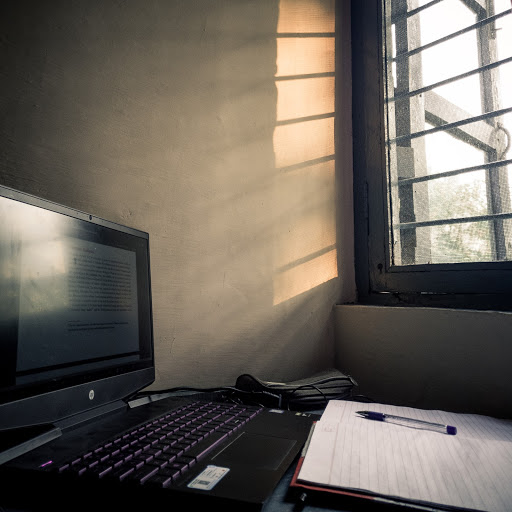

Body of IITR

The Academic Section issued the Autumn Semester 2020-2021 completion plan for all the students (excluding UG 1st year) and a revised academic calendar on 6th January 2021, following the Senate and IAPC meeting’s resolution [1]. While this decision, which came over a month after the last working day, shows the Institute’s intention to wrap up the on-going online semester, it fails to account for a few crucial issues. Watch Out! highlights some of these leftover problems and proposes solutions for the same.
With a revamped academic calendar and a different instruction mode, students and the faculty braced for their first experience with the online scheme of things. Although students managed to adapt to this teaching mode for over four months, they certainly cannot do the same during the upcoming online ETEs without getting some support from the Institute. The Institute’s casual approach has led to chucklesome guidelines by the course instructors [2], raising questions on their preparedness to tackle the problems mentioned below:
The assumption that all the students have/will be able to arrange a high-speed internet connection, a good quality camera, as well as power backup for three continuous hours, is preposterous. What is even more mind-boggling is the fact that this has happened after the waiving off of the attendance rules for the current semester on the grounds that all students might not have a working internet connection at all times. This far into the year if students could have arranged those facilities, they would have done so already.
The number of days given to the students to arrange the above-mentioned things while also expecting them to prepare for the said examinations is inadequate. The Institute (as of 9/1/21) still hasn’t issued a proper SOP for conducting online assessments, like. The onus is effectively on the students and the professors regarding planning/proctoring the examination. The grey areas surrounding these examinations will be a cause of confusion for the whole student community.
The current semester has needlessly dragged on to February. The administration has continuously pointed to the pandemic to justify their policies and many students may miss out on their internships. Those applying off-campus or to summer research programs are the worst affected as these programs have rigid schedules.
The provision of S grade was introduced last semester to ensure that no student has to bear the consequences of a faulty internet connection. This has been scrapped for the current semester, which was held entirely in the online mode.
With the chances of getting caught in a remote learning model being significantly lower, there will likely be more instances of cheating, which go unnoticed. While there doesn’t seem to be any foolproof solution for this problem, it is still something that needs to be considered if online evaluations are to hold any meaning. With the S grade and voluntary re-examinations scrapped, students have no choice but to accept all grades, no matter how skewed they may be.
An issue that extends beyond the exams is the evaluation of practical courses and practical work in general. With evaluation being reduced to project work, viva-voce, and the like, while also considering the postponement of practical work to the next sem which will most probably be held online as well, the certifying of such work is still uncertain.
No consideration has been given to the issue of MTEs disguised as quizzes and marks on attendance. These issues had persisted despite students approaching their departmental authorities. With 50% marks going towards CWS, it is imperative that the Institute looks into such matters with more consideration than mutual trust.
The Institute provides no means for students with bad internet connectivity to go to areas with better connectivity. As the institute already recognises, travel and accommodation are a big hurdle for such aspirants, along with the uncertainty associated with using resources of another institute.
The new year witnessed uproarious scenes on all the major social media, stressing the urgent need to re-open the colleges. Although the Institute did allow the entry of some Ph.D. scholars, M.Tech, and final year B.Tech students citing academic reasons, the future is still blurry for the rest of them. A hybrid solution for those who cannot access facilities could be the saviour.
While the Video Conferencing (VC) software like Webex, MS Teams does prove useful for a good student-professor interaction in this online age, it certainly cannot be used for conducting online examinations. Remote Proctoring using VC systems forces one to adopt illogical guidelines concerning the use of cams for invigilation. They are accompanied by potential privacy and security risks, as seen in some other universities [8].
The re-exams guidelines best portray the unforeseen problems that may arise with the same. In this regard, the Institute may try to adopt a novel Proctoring and Exam Model similar to the one proposed by the Indian Institute of Technology Bombay [3].
The existing model for conducting objective exams, quizzes involves the use of platforms like Google forms. While it may look like a viable method, it does have its shortcomings. Similarly, no ideal method apart from remote proctoring exists for conducting subjective exams as such. To tackle this, IIT Bombay launched the SAFE (Smart Authenticated Fast Exam) app before the beginning of this semester. With SAFE, conducting objective exams is paper and cheating free, thereby eliminating the tedious task of manual evaluation and conducting surveys. It can also be used to gather attendance records. [4]
IIT Bhubaneswar has also developed an innovative method for conducting comprehensive online examinations. The system uses two or more network connections for reliability and additional facility for proctoring for reliable invigilation. [5]
The Institute can easily create such software, taking the help of the technical groups on the campus. Automating repetitive stuff can go on a long way to curb the malpractices during the online exams.
The dry runs of Covishield and Covaxin taking place all over India followed by the Health Minister’s recent announcement [6] have sparked a ray of hope among many. Several institutions, including the Manipal Institute of Technology, have already opened up while a few like IIM Indore have planned the re-opening of their campuses [7]. With such rapid advancements in the medical sector, the Institute can make plans to re-open the campus for the Junta. It will take long term planning, and many phases for the entire student base to be brought back, but now is the time to start.
In order to keep the year on track, it would be best if the Institute keeps the time between the autumn and the spring semester as short as possible, ensuring that the Internship Season is conducted on time. Any unnecessary delay may cause large problems for everyone. We also believe that students with bad internet connectivity and problems should be called back to the campus for better provisions of the same.
We urge the student representatives to help keep the student populace in the loop of the whole decision-making process. With this being said, to rely on one group of people and expect them to solve everything for us is not going to work as well. The whole student community needs to come forward in these times in solidarity with the students that will be facing genuine problems in the upcoming examinations and semester.
The series of interviews with the DoSW and the DoAA was aimed at gathering information about the details of the current semester completion and the subsequent spring semester. We wanted to provide a platform to hold discussions as well as ensure proper information dissemination to the students of our campus.
The pitfalls of the plans put forward by our college administration are glaring. In the whole process of decision making, it has felt as if the student representation in these student bodies has been minimal. We understand that the student representatives hold no real power in these decision making bodies, and the final decision will always lie with the administration. However, the disconnect between the student populace and the administration while making decisions that directly cater to us is disheartening.
[1] https://www.iitr.ac.in/academics/uploads/85.1_Revised%20Autumn%20Sems%202020-21.pdf
[2] https://i.imgur.com/9aeV5wj.png
[3] https://docs.google.com/document/d/1ol1VVWZO-dCnRyRZQIWu1nSzI0R5eyXM2aP_nTiSaJw/edit#
[4] https://safe.cse.iitb.ac.in/
[5] https://www.iitbbs.ac.in/news.php?id=1150
[7] https://i.imgur.com/2dF0ZXi.jpg
Picture credits: Harsh Kumar